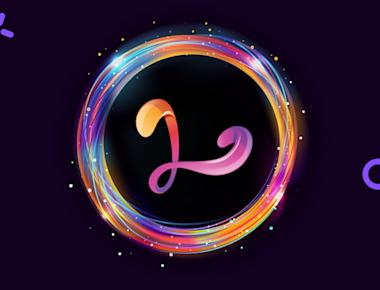

In the previous article, we conversed about blockchain’s applications in healthcare, but this article is about the potential benefits countries stand to reap from the utilization and integration of blockchain. Blockchain is commonly known as a digital ledger introduced to the masses by Satoshi Nakamoto in 2009. Blockchain is composed of blocks that are linked by cryptographic keys, which enable it to be exceptionally secure. Blockchain technology is known for its decentralized nature, immutability, consensus-driven nature, and transparency.
Decentralization. What does this mean for developing countries? In many developing countries, there are histories of governmental oppression and abuse of power. Thus the decentralized nature of blockchain allows for users to feel more secure as power isn’t concentrated all in one place but is spread out. One of the most prominent examples of positive decentralization from a blockchain perspective is currency. A decentralized currency means that it isn’t subject to monetary policies, which influences the currency to become a stabilizing agent in economies with an unstable fiat currency. It also protects users from bank crashes and aggressive banking tactics, which can severely damage a multitude of lives in developing countries. Additionally, in developing countries, there are often underbanked populations that haven’t utilized banks for a myriad of reasons. A decentralized blockchain currency only requires users to create a digital wallet that allows them to be a part of a secure, decentralized “bank.”
Moving on, the immutability of blockchain records engenders a system that tackles corruption and prevents manipulation that can occur with traditional currencies.This aspect of blockchain means that once information is in the blockchain, it cannot be altered. These characteristics of blockchain can be tremendously helpful in countries with heavy corruption and a track record of oppression. For example, in India, Consensys Ventures has been working with land ownership records using blockchain. Kavita Gupta, a managing founding partner of the firm, says, “earlier, people could change land records by bribing somebody, and the government had no jurisdiction to do background checks. It was the buyer’s responsibility to do those checks, but there was no effective method or system to do that. The project we are implementing allows you to track land ownership history over time, and do verified land titling registration with background checks on who paid [the property] taxes.” Thus, blockchain technology is already engendering tangible effects in developing countries such as India that stalwarts corruption and hinders bribery, all the while protecting its users and expanding access to financial services. Additionally, the immutability aspect of blockchain can also be useful in terms of record-keeping, such as health records. Smart contracts, self-executing event-triggered programs, can be built on top of blockchain, allowing contracts and agreements to be securely communicated as smart contracts are written into the blockchain itself.
What does consensus-driven mean? Blockchain technology being consensus-driven just means that every transaction done through the blockchain must be verified by both parties. This prevents what is called the Byzantine General’s Problem, which is where false entities try to enter false records into the blockchain. The consensus-driven nature of blockchain aims to combat this problem by obtaining consensus through three different ways: Proof-of-work, Proof-of-authority, and Proof-of-stake; however, there are many other ways consensus is reached across public, private, and federated blockchains.
Lastly, the transparency incorporated into blockchain technology allows for users to clearly access all information pertinent to them all the way back to the genesis block. This enables users to access the information when they need and when they want to, which also bolsters governmental transparency.
Overall, the different aspects of blockchain all take great strides from current out-of-date technology and into the future. Blockchain offers people the opportunity to take their finances, data, records, and lives back into their own hands.
Sources
Choudhury, K. (2019, January 3). What Blockchain Means for Developing Countries. Medium. https://medium.com/swlh/what-blockchain-means-for-developing-countries-1ec25a416a4b.
How the Blockchain Brings Social Benefits to Emerging Economies. Knowledge@Wharton. (2018, November 28). https://knowledge.wharton.upenn.edu/article/blockchain-brings-social-benefits-emerging-economies.
Reese, F. (2019, April 29). 7 Benefits of Decentralized Currency. Bitcoin Market Journal. https://www.bitcoinmarketjournal.com/decentralized-currency.
Subscribe to our newsletter!
Quick Links
Legal Stuff







